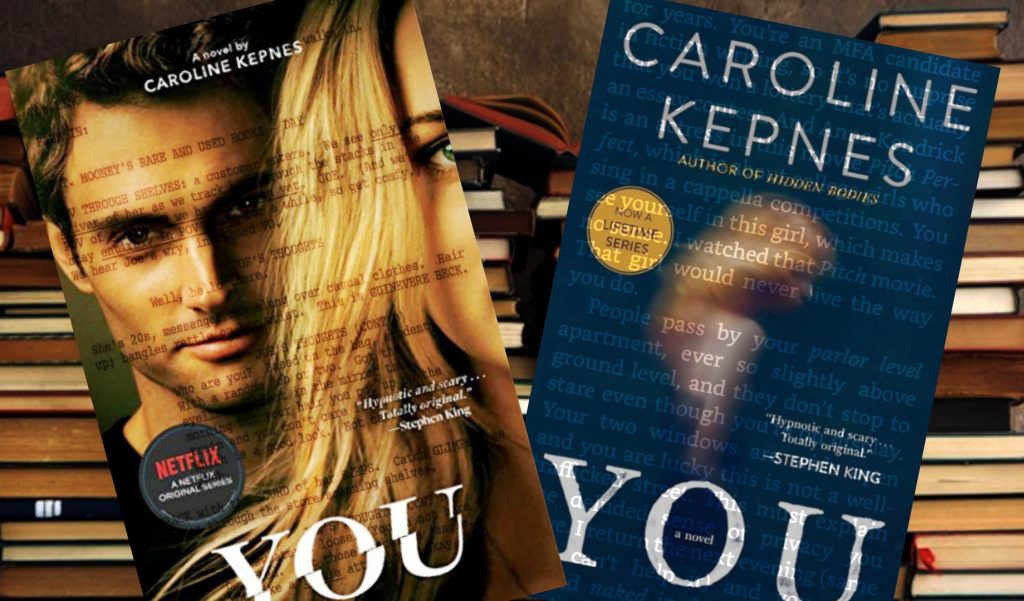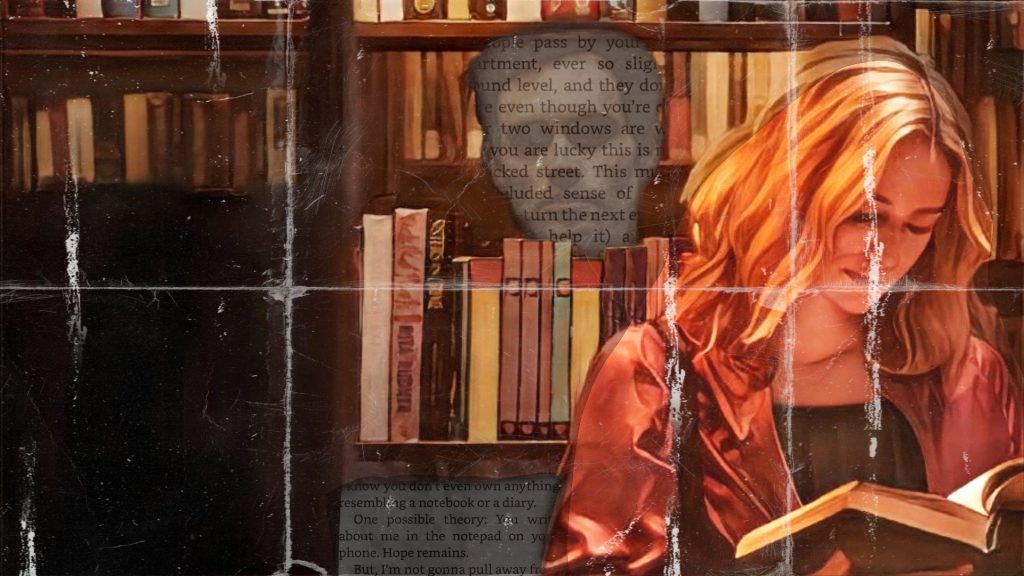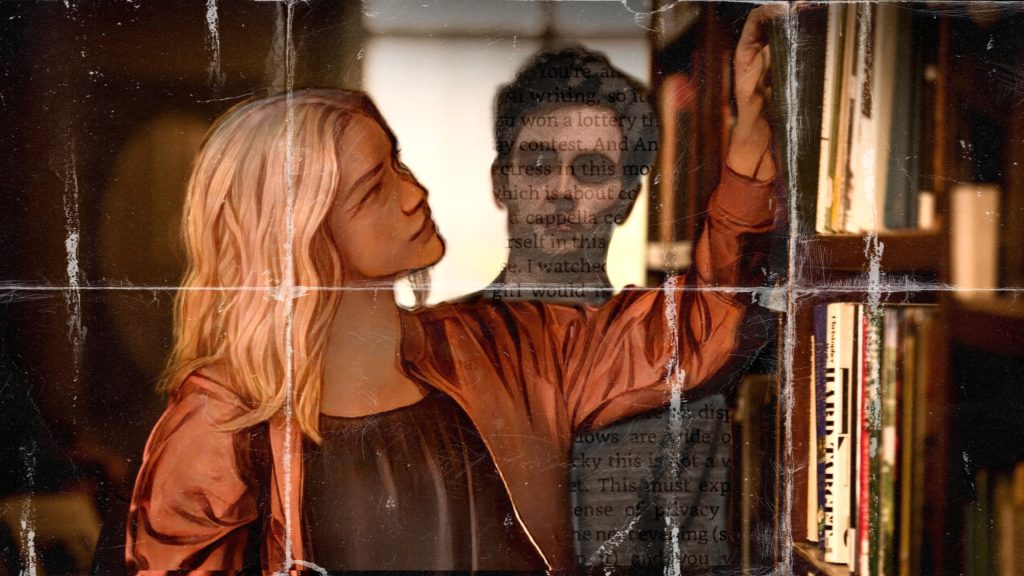Original vs. Adaptation: ‘You’
The story of “You” begins with the audience entering the dangerously sharp mind of Joe Goldberg, a sarcastic stalker living in New York City. The Netflix series was recently adapted to television in 2018 following the success of the novel by the same name. When faced with the option of differing mediums, which should you feel more inclined to indulge in?

The Plot of “You”
Both mediums open with narration from the perspective of Joe Goldberg when MFA student, Guineviere Beck, stumbles into his workplace. Joe’s keen observational skills unfurl as he details Beck’s every movement throughout his unassuming book store. Joe’s uncanny investigation of his newest target helps to tip the audience off to the depths of his true nature. This is not a love story and Joe is not our hero.

Cast vs. Characters
“You” dually serves as a character study and an exploration of human depravity. Due to the necessary focus on character psyches, the television adaptation and its literary predecessor differ most in ther portrayal of main characters Joe and Beck.
Netflix’s Joe Goldberg underwent thorough restructuring and subsequently rose him to anti-hero status. His off-screen character development gifted him a moral compass, ethical social politics, and the ability to conjure up punchy one-liners.
These traits are devoid from the version of Joe present in the novel. Kepnes’ original portrayal of Joe Goldberg lacks the deceptive charm that Penn Badgely bestows the character via his scarily convincing performance. Many of Joe’s thoughts in the novel are unabashed, cruel and twisted. In the novel, he is a revoltingly candid narcassist that convincingly masqueraded himself among the unsuspecting.
In comparison to the Netflix adaptation, Kepnes’ original portrayal of Guinivere Beck is far more naïve. Kepnes’ version of Beck less focused on writing, friends and her family. Netflix audiences that discovered a kindred spirit in Becks’ artistic intelligence and quick wit may find that the book leaves much to be desired. Kepnes’ original take on Beck serves a seperate purpose to the novel’s overall narrative. Beck becomes the innocuous, straight-man to Joe’s unhinged sociopathy. This often leaves her dialogue flat and, fittingly, lifeless.
However, her seemingly shrunken character does serve a purpose. Beck is a slate to project onto. Her shapless familiarity recalls the image of readers’ friends, young colleagues or even themselves. Her generalness makes Joe’s fixation on her all the more unsettling. Their courtship raises less red flags in the novel compared the television adaptation due the homogeneity of their casual conversations. In an ironic twist, the uinquely named Guinevere Beck is transformed into Jane Doe.

Tone vs. Tone
In the defense of “You” fans that found themselves confused by their attraction to Penn Badgely as Joe, this version of the character was designed with confused disgust as a main feature.
Kepnes commented that “Joe on screen is different from Joe on the page.” Joe Goldberg had undergone an evolution of sorts whilst developing the television series. The casting decision for Joe’s live action appearence made a unique impact on the trajectory of the story. He picks up where Dan Humphrey of “Gossip Girl” left off. Badgely had previously portrayed Dan Humphrey of Gossip Girl, a snarky yet intelligent fan favorite. Badgely discussed the similarities that can be found in both characters “it’s the same role. But now he has blood dripping down his face.” Joe was created with the intent of being superficially appealing as to disarm well informed audiences. “Pop culture informs our lives to a great extent,” Kepne stated in an interview referring You’s varying storybeats.
The consequence of this is that the tone of Netflix’s “You” is much less gritty in comparison to the book. Instead, it is bouncy and fast paced with the exception of deeply gut wrenching moments. The feeling is not too far off from love, or more accurately, the throws of obsession. Netflix audiences’ unwillingness to admit that Joe, the darkly funny guy-next-door, is all bad keeps them coming back for more. Joe’s onscreen apparition carries a genuinely likable and endearing facade. As Beck falls in love with the projection of Joe, we also fall despite being armed with the knowledge that he is a dangerous stalker.
In an unexpected twist for show-only fans, Kepnes visage of Joe Goldberg is consistently, deeply unsettling. The novel keeps readers so relentlessly and viscerally disgusted that they are tempted to put it down. However, readers may find themselves unable to close the chapter on Joe’s life. The novel uses this general unease to headlock its audience in a case of morbid schadenfreude. Once the reader feels as though they have Joe sorted out, he takes a turn that rattles them in an unpredictable way. Joe is so unbelievably callous and shocking, that reaching the conclusion of he and Beck’s story becomes a compulsory need. Not unlike Netflix’s method of involving audiences in the life of Joe, Kepnes creates a fissure between the reader’s sense of morality and personal desire.
The voyeuristic nature of the book forges an uncomfortable symbiotic relationship between Joe and the reader. In order to quench the desire to know more about Joe and his inner workings, you must first enable him by turning the page. Attention is drawn to the fact that the reader and Joe are technically partners in crime, and by furthering his story, you will lead the unsuspecting Guinivere Beck to her untimely end. In this story, there is Joe and there is You.

Re-watch vs. Reread
Both the novel and the Netflix series offer something special. Depending on a reader’s desired level of daily anguish, a fan of the series may be more inclined to pick up the book rather than the remote. The book has passages that are deeply disturbing, so those who are sensitive to stomach-churning content may be more put off. The Netflix series, off-putting as it may be, has moments of respite supported by its stellar comedic timing and beautiful cinematography.
Overall, I greatly enjoyed both and they make a wonderful addition to skin-crawling consumable content for spooky season. I plan on re-watching and rereading both as the season turns chilly.




















